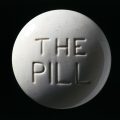In recent hearings on Capitol Hill, freshman Representative Lauren Underwood challenged Labor Secretary Alex Acosta on his Cabinet department’s efforts to allow insurance exemptions to employers who wish not to cover birth control for religious reasons. She told him, “Women’s lives and their health depend on their ability to access contraceptives.” Then, citing the many women who take contraceptives to treat polycystic ovarian syndrome, endometriosis, and anemia, she continued, “Your actions, sir, are denying science and putting American women at risk.”
Can we put the religious debate aside and talk honestly about the science and the risks to women for a moment?
Caring About Women’s Health
Women’s health care has grown into something very different than caring about women’s health. If we actually cared about their health, we would want women to know the truth about their options. We would want their informed consent to be informed.
I get that hormonal birth control is frequently prescribed off-label, not to prevent pregnancy, but in response to some underlying issue. Sometimes it’s a serious condition, like those mentioned by Rep. Underwood, and sometimes it’s a not-so-serious condition, like acne or slightly irregular periods.
When I’ve spoken with women about the dangers of birth control, a surprising number of them have told me that off-label issues caused them to go on The Pill. I think of one young lady in particular who told me she really didn’t want to go on birth control, but her periods were too heavy. She literally had a period that lasted 30 days, making her terribly weak. She said The Pill helped regulate her periods.
In instances like this, the problem is that The Pill really isn’t regulating the period, nor is it treating anything. It’s only masking the underlying medical issue. We wouldn’t put a band-aid on a patient who appears to have a flesh-eating bacteria and think we’ve done our job, but that’s essentially what we do with these hormonal ‘treatments.’
There has to be a better option, an actual treatment, for women like this young lady. I’m not a medical professional so I don’t know what it would be, but I’ve taken this stance regarding the multitude of off-label prescriptions: I may not have all the answers, but that doesn’t mean I’m obliged to accept the doctors’ answers – and neither are the women suffering these conditions.
A recent conversation I had with an Ob/Gyn validated that position. She explained why Ob/Gyns are hesitant to consider cutting back on birth control prescriptions:
“Providing contraception represents one-third of an Ob-Gyn’s practice, and in the back of their minds they think [reducing birth control prescriptions] will hurt the number of patients coming to see them. However, even for medical problems often treated with hormonal contraceptives, there is always a better, safer way to manage the problem that gets to the cause rather than acting as a cover-up.”
Women Deserve Better
In my new book, In the Name of The Pill, I tell the story of Anthony, a father emboldened by the death of his 20-year-old daughter, Alex, after only 8 months on The Pill. Anthony reached out to me when he read my article on Hormones Matter, which posted the very day his daughter died. In it, I discussed the many young women we have lost to birth control, and my hopes that one of these stories might trigger a chain reaction that would inspire women to stop taking The Pill.
Anthony is determined to prevent other families from experiencing the pain his family will endure for the rest of their days. I admire his tenacity. Every day, he posts informative stories and articles on social media with the frequent hashtag – #womendeservebetter.
He strikes up conversations with women about their birth control and attempts to alert them to the dangers. He told me that women are often outraged when he tells them about the Nelson Pill Hearings because they can’t believe that the vast multitude of risks have been known for over 50 years. That is the crux of the problem.
How many young women even know that The Pill has been linked to cancer, depression, and autoimmune disease? The answer is “not enough.”
The History of Birth Control Risks
If you’ve read any of my previous articles, you may know I’m slightly obsessed with the Nelson Pill Hearings. Held in 1970, these Congressional hearings featured leading physicians who exposed the diverse complications just beginning to be associated with The Pill. These warnings were largely ignored, but the reason the hearings are still relevant today is because the drug industry continues to act surprised when new studies connect hormonal birth control to the very same complications.
Imagine you’re a young woman who visited the doctor this morning and were diagnosed with lupus. You question the timing because you just started birth control weeks ago, and suspect it may have something to do with your diagnosis. When you find out that doctors 50 years ago recognized the increased risk of developing lupus among birth control users, you’re likely to become more than a little angry – and justifiably so. This is important information that should have been shared with you before you began taking The Pill.
And, it isn’t just lupus. Anthony’s daughter died from blood clots in her lungs. He said he had no idea how dangerous birth control was until after it was too late for Alex, and he’s sure she hadn’t been sufficiently warned either. He told me, “It’s easy to find articles about how The Pill helps your acne or menstrual pain, but to learn how dangerous these things are you really have to dig and know what you’re looking for.”
We have to do more to bring the dangers to light. I believe this calls for a new level of activism, but once again, I don’t have all the answers. I just know I want to do something more. I write these articles. I’ve written a book. I talk about birth control with nearly every young woman I meet, but I WANT TO DO MORE. I know there are many of us who have awoken to the dangers of this potent drug, and we all want to do more.
What more can we do? And, how can we collectively organize our efforts? Next year marks the 50th anniversary of the Nelson Pill Hearings, and many of the topics discussed at the hearings deserve further investigation. I think we should band together and demand that Congress revisit the hearings. We should ask them to simply address the same two questions Senator Gaylord Nelson attempted to answer in 1970:
- Whether The Pill (and all other hormonal contraceptives) have been proven safe
- Whether women are being given sufficient information about the possible dangers.
I’d like your suggestions on how we can make this push. Please share any ideas you have in the comments section below.
[atkp_product id=’48881′ template=’bestseller’][/atkp_product]
We Need Your Help
More people than ever are reading Hormones Matter, a testament to the need for independent voices in health and medicine. We are not funded and accept limited advertising. Unlike many health sites, we don’t force you to purchase a subscription. We believe health information should be open to all. If you read Hormones Matter, like it, please help support it. Contribute now.
Yes, I would like to support Hormones Matter.














Please share the alternative to the pill called Fertility Awareness Method. To find a certified instructor (certification is important especially when dealing with some of the off label reasons why women choose the pill) go to http://www.fertilityawarenessprofessionals.com
Another great resource is http://www.justisse.com whose graduates are trained to help women with cycle challenges as well as teach a secular approach to family planning.
Dr. Holland, I agree wholeheartedly. I’m thankful that Fertility Awareness Methods are starting to get the recognition they deserve from women concerned about their health. These methods provide a perfect solution to offer young women as an alternative after they’ve been warned about the internal pollution of hormonal birth control.